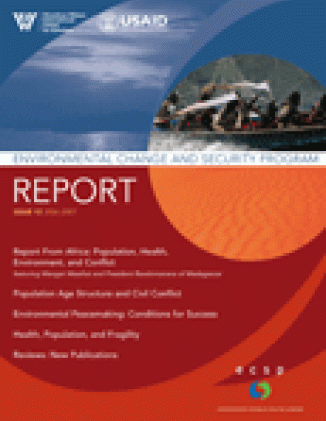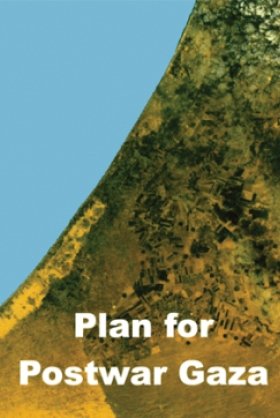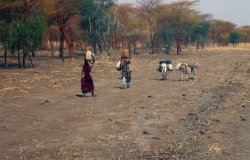Climate-Related Conflicts in West Africa


Using a combination of questionnaires, stakeholder analyses, and focus group discussions, I collected data from 800 households in 27 communities in northern Nigeria. The results show that natural resource-related conflicts are the predominant types of conflict in the region. Current climate variability affects the distribution and availability of these resources. Predicted climactic changes driven by global climate change will also affect this variability in the future, changing patterns of distribution and availability, and potentially further exacerbating conflict. The results of this research should inform policymakers in the design and implementation of conflict resolution strategies within the framework of sustainable development.
About the Author
Anthony Nyong

Environmental Change and Security Program
The Environmental Change and Security Program (ECSP) explores the connections between environmental change, health, and population dynamics and their links to conflict, human insecurity, and foreign policy. Read more










